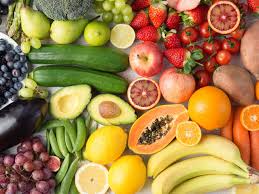Pumping up your fruit and vegetable intake may be key to lowering high blood pressure (hypertension), which is responsible for at least 51 percent of deaths due to stroke and 45 percent of heart disease deaths, according to the World Health Organization.
Decreasing sodium intake is vital for lowering blood pressure, but so is raising your potassium level, says Alicia McDonough, a University of Southern California researcher who reviewed studies that looked at the link between high blood pressure and dietary sodium along with the sodium-potassium ratio.
The review was published in the American Journal of Physiology, Endocrinology and Metabolism.
Several studies have found that higher dietary potassium is associated with lower blood pressure, no matter what a person’s salt intake. Potassium supplements also helped.
The body’s balancing act uses sodium to maintain close control of potassium levels in the blood, which is critical to normal heart, nerve, and muscle function.
Fruits and vegetables particularly rich in potassium include avocado, acorn squash, spinach, dried apricots, pomegranates, white beans, and bananas.
You can also get potassium from tuna (fresh, frozen, or canned, but avoid those packed in brine), yogurt (unflavored, preferably), and low-fat milk.
If you have kidney disease or are taking certain blood pressure medications, a large increase in potassium could be harmful. In that case, avoid taking potassium supplements and check with your doctor before dramatically increasing your potassium intake.
By Dr. Crandall, Newsmax


